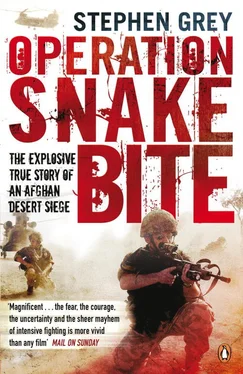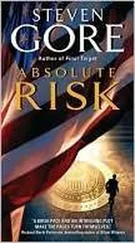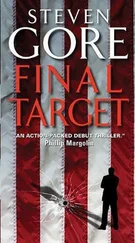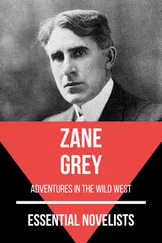During the early days, recalled Downey, Mohaydin rose to the challenge, getting his soldiers to win the sort of consent from a sceptical population that western forces could never have achieved. ‘They talked to the people, Afghan to Afghan, knowing what buttons to press, how to encourage and how to coerce. The people saw them broadly as a legitimate, Islamic force.’ But there was still one man missing from the show: the now legendary man of mystery, Mullah Abdul Salaam, whom almost no one had actually ever seen. He finally appeared without warning on 23 December, the day that Downey and Mohaydin got a large shura together. And he was a striking figure, with a wild and bushy black beard and curled slippers: something like a genie from a bottle in an Arabian Nights caricature. Everyone watched anxiously to see how the people would react to Mullah Salaam. The 1 Fury commander, Brian Mennes, noticed the British were particularly nervous, perhaps ‘because they were scarred by the initial Musa Qala operations, which had failed so miserably.’
But Salaam spoke like a pro.
‘Three weeks ago, I was doing bad things,’ he told a crowd of locals. ‘And a few years back you and I were killing the Americans. But I’m on board now. You all need to come with me!’ Salaam had totally taken charge, said Mennes. ‘I’ve listened to a lot of Afghan shura speeches – and I was like, “Oh, oh, he’s good.” He was very good.’ Salaam spoke the words the coalition wanted and was prepared to repeat his message to everyone – he was driven round from village to village to tell the people to back the government.
Mennes saw a lot of him later. ‘I used to walk into his little court with everyone on the floor, sitting around smoking cigarettes and drinking tea on pillows. They had a little stove, and people were feeding his cat.’ They struck up a bond. ‘He told me the liberation of Musa Qala was about the most heroic thing he had seen. Because we killed almost no one that shouldn’t have been killed.’
Up in Kabul, Michael Semple had been trying to make sense of what had happened in Musa Qala. In the build-up, he had been active behind the scenes, emptying and sharing his contact book with anyone who needed it. The Afghan security agencies had pumped the telephones, trying to cajole Taliban commanders not to join the fight.
‘It wasn’t my job as an EU political officer to play a direct role in a NATO military operation,’ he recalled. ‘But I did brief and advise everyone who cared to listen. There was a pooling of effort in putting pressure on the Taliban not to join the fight.’
By the end they estimated the ‘reconciliation’ process had successfully kept some key Taliban commanders out of the fight. Both the Afghan intelligence service (the NDS) and the Interior Ministry claimed some 800 fighters in northern Helmand had chosen to avoid joining their comrades in the defence of Musa Qala. Semple thought the true figure was more like 400. But it was still a lot.
The stunning Taliban defeats in both Musa Qala and Sangin by NATO forces had also changed the dynamics, thought Semple. The time was ripe to take reconciliation on to another stage, to test the words of some of those Helmand tribesmen and fighters who had vowed to him and Naquib they would reject the extremists. He had been chatting over what to do next, principally with Dr Abdullah, the deputy head of the NDS, and with two deputy interior ministers, Hadi Khalid and Munir Mangal. Ironically, given what followed, it was in a meeting with the latter that the concept of the ‘training camp’ was thrashed out.
‘The idea was simple,’ said Semple. ‘You needed somewhere to invite people to. An assurance of love and goodwill from them was not enough. But simply recruiting them into a fighting force wasn’t either a good idea or something that NATO would accept.’
Semple thought up a six-week ‘life-skills’ type of course for former Taliban: Afghan history and constitution, some reading and writing and plenty of physical exercise. Mangal suggested getting a private security firm to run it.
The Afghan officials he met in Kabul liked the camp idea, as did the British. The brigade in Lashkar Gah was briefed, and soon the army got to work on the planning for the camp, even finding a place for it. Contractors who were going to start work on a road to Kajaki were interested – offering to give the ex-Taliban work.
On 18 December, Cowper-Coles was in Lashkah Gah. He and Mackay were briefed on the latest ideas. The ambassador – who referred to the camp as the ‘boy scout plan’ – asked if Wafa had been informed. He was told not. Semple was invited to come down to lay things on the table. That Sunday, Semple arrived on a United Nations helicopter. He had hitched a ride with his friend Mervyn Patterson, who had some separate UN business in Lashkar Gah: nothing to do with Semple or his plans, though Wafa invited them both for a meeting that night.
Arriving at the Lashkar Gah base, Semple and a delegation from the Ministry of Interior were ushered into a briefing room. Patterson did not take part. Semple and Naquib told everyone about the big idea. It was still just a concept – a possible option. Brigadier Mackay was keen.
As Semple drove round to the ill-fated meeting with Governor Wafa at his residence, Khalid, the Interior Ministry deputy minister, rang to ask how things were going. Semple quipped, ‘I am going into battle as your soldier, pray for me.’ Khalid wished him luck.
The morning after, with General Naquib still in the custody of the secret police, Semple saw Wafa again. He was now dangling a USB computer memory stick taken from Naquib. ‘I have his internet, I have got his internet,’ he exclaimed.
The memory stick contained a draft of a briefing on the ex-Taliban camp plan, including a draft budget intended to help make a bid for British funding. Wafa had also seized cash from Naquib. Wafa said it was more than 150,000 dollars to be paid to ‘terrorists’ – a fabrication, according to Semple. In fact it was, he said, 18,700 dollars and it was British Embassy money intended to fund the expenses of the ex-Taliban ‘Group’ in Gereshk.
Andrew Patrick, the deputy head of mission at the British Embassy, was pouring drinks for Christmas Day lunch when the phone rang. It was the duty officer. With the ambassador away on leave with his parents-in-law, Patrick was in charge of British interests. All ambassadors from the European Union were being summoned immediately before the minister of foreign affairs, Rangin Spanta.
The envoys were given the news: Michael Semple and Mervyn Patterson were being declared persona non grata and ordered to leave the country within forty-eight hours. They had taken ‘actions prejudicial to the security of Afghanistan’ – they had engaged in unauthorized negotiation with the Taliban, were carrying thousands of dollars to pay them off and had even held a meeting, it was later suggested, with one of the most wanted senior Taliban commanders, Mansour Dadullah, brother of the Taliban commander killed by the Special Boat Service.
Telephoned in the UK, Cowper-Coles started to pack his bags to return to Kabul. The idea of Semple and Patterson, who was a UK national, both being expelled seemed extraordinary, a windup. While no official statement was made that accused Britain of involvement, the Afghans were telling anyone who asked that Semple and Patterson had been mixed up with British intelligence. Their talks with the Taliban were a plot by the Secret Intelligence Service, a revival of the spy intrigues of the nineteenth-century ‘Great Game’. This whole row was not just an accusation by Karzai against EU and UN diplomats, it seemed like an attempt to stir up a row with perfidious Albion.
Читать дальше












